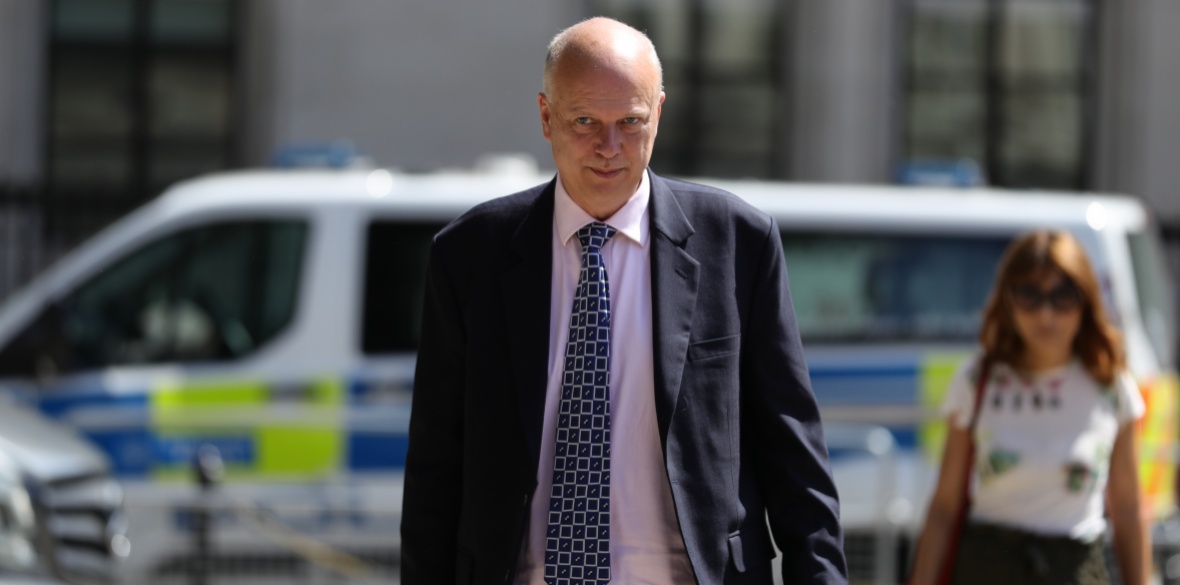This is the last article you can read this month
You can read more article this month
You can read more articles this month
Sorry your limit is up for this month
Reset on:
Please help support the Morning Star by subscribing here
PRIVATISATION is bad. Chris Grayling is bad. Now-defunct Carillion was bad, but still-trading privatisation corporation Amey is also bad.
That’s the lesson of the highly critical National Audit Office report into Grayling’s prison privatisation, published this February.
The Audit Office is the government’s official spending watchdog. Its report, entitled “Improving the Prison Estate,” shows how Grayling, Carillion and Amey didn’t improve the state of prisons at all.
The results are grim. The Audit Office is usually quite restrained, but it states baldly: “Prisoners are being held in unsafe and crowded conditions.”
There are around 83,000 prisoners, and 40 per cent of the prisons they are kept in are “poor” or “not sufficiently good.”
The grim physical conditions have led to huge increases in prisoners harming themselves, attacking other prisoners or assaulting staff. This is human misery.
In 2014 Grayling, then justice minister, decided privatising prison maintenance with some big regional contracts would fix this.
All the contracts, worth hundreds of millions a year, were split between leading British privatisation companies Carillion and Amey.
Back in 2014 Grayling confidently announced “a new programme of work to drive down costs across prisons in order to deliver value for money for the taxpayer, accelerate cost reductions, maximise savings and to improve outcomes without compromising public safety.”
That didn’t happen. The privatisation has failed. The auditors say: “There are severe maintenance backlogs,” 41 per cent of the estate “needs major repair or replacement in the next three years” while “2 per cent of prisons are running a serious risk of ‘imminent breakdown’.” Inspectors also found 63,200 outstanding maintenance jobs.
In 2014 Grayling confidently predicted “expected savings from these contracts in the region of ₤115 million over that period,” which he said represented an “impressive saving for the taxpayer.”
But there has been no saving. According to the Audit Office, “contracting out to Amey and Carillion has failed to achieve these” savings.
Both Amey and Carillion’s “performance against targets has been below” the Prison Service’s expectations.
Of the two, “Carillion’s performance was poor and highly variable.” Amey did a better job “and is improving.”
However, neither firm “met expectations” particularly for areas that “have the biggest impact on prison maintenance.”
Carillion has since collapsed, and an improvised state-run firm called Gov Facility Services Limited (GFSL) has taken on its work.
In 2014, Grayling said: “Robust arrangements will be in place to manage the new contracts” with Amey and Carillion. However, the Audit Office found “due diligence was not sufficiently robust”
The Audit Office adds that under Grayling prisons department privatisation “contained common mistakes made in first-generation outsourcing.
“It had an inaccurate and incomplete understanding of its assets, their condition and required services,” which seems a polite way of saying Grayling did not understand what he was doing.
Before the big contracts, the Prison Service “delivered facilities management services itself through local prison works departments, drawing on around 450 contracts to procure specialist services.”
Prison conditions were grim because of under-funding, but it looks like letting the Prison Service itself run maintenance, with local building firms, is a better plan than handing out massive sweetheart contracts to big privatisation corporations.










